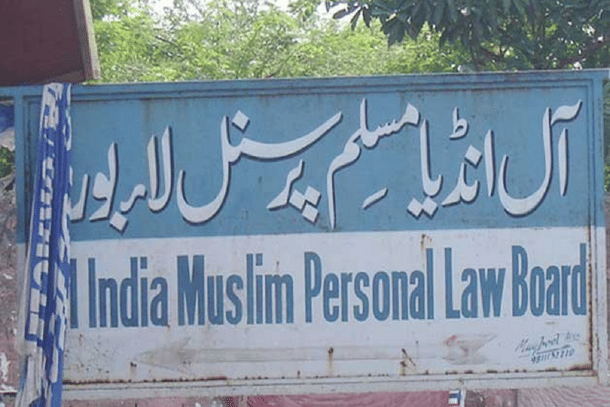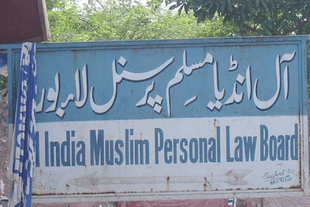Ideas
AIMPLB Needs To Reform Itself Before Claiming To Represent Indian Muslims
Arshia Malik
Sep 21, 2023, 05:59 PM | Updated 05:59 PM IST
Save & read from anywhere!
Bookmark stories for easy access on any device or the Swarajya app.


The All-India Muslim Personal Law Board is an NGO that claims to represent the interests of Muslims in India and works towards the preservation and application of Muslim personal laws in the country. Though it addresses various issues related to family law, including inheritance rights, it took them 50 years since their formation in 1973 to realise that women do not receive their inheritance as per sharia laws.
Hence the All-India Muslim Personal Law Board (AIMPLB) is planning to launch a "systematic movement" aimed at ensuring that women receive their rightful share of paternal property as stipulated by Sharia law.
The board's working committee recognized that, despite the legal entitlement, many daughters do not receive their prescribed share of their father's inheritance, and similar issues exist concerning a mother's entitlement from her son's property or a woman's claim to her deceased husband's property.
According to media reports, the board also identified other pressing issues affecting women, including female foeticide, dowry, delayed marriages, attacks on women's dignity, workplace exploitation, and domestic violence.
To address these concerns, the AIMPLB has decided to focus on reforming society from within.
Three secretaries have been assigned responsibilities in different parts of the country, and a committee has been formed to develop a plan for these intended reforms.
The AIMPLB is against a Uniform Civil Code (UCC) and according to a press statement issued by the board, the AIMPLB argues that Sharia Law (Muslim Personal Law) comprises of two components: one based on the Quran and Sunna (the Prophet's words and actions) and the other on Ijtihad (Islamic scholars' opinions).
The first part, rooted in the Quran and Sunna, is considered unalterable, even by Muslim scholars. However, Ijtihad can evolve in response to changing times and circumstances. Consequently, any significant alteration to the fundamental structure of Sharia is not acceptable to Muslims, as it could undermine their religious freedom guaranteed by the Indian Constitution.
If this approach of the AIMPLB is to be considered, then the Crown Prince of Saudi Arabia Mohammed bin Salman's statements regarding the Hadith are at cross purposes with the Board’s view.

Bin Salman, or MbS as he is known, has made several statements regarding the Hadith. While the Hadith specifically refers to the recorded statements and actions of the Prophet Muhammad, the Sunnah encompasses a broader concept, including his entire way of life and example. Both Hadith and Sunnah play important roles in Islamic jurisprudence, theology, and daily practice for Muslims.
In an effort to reform Saudi Arabia and promote a more moderate form of Islam, bin Salman has emphasized the need for proper documentation and authentication of the Hadith. He believes that this is necessary to prevent the misuse of Hadith by Islamic radicals and terrorists. Bin Salman has also expressed the view that the Quran, the holy book of Islam, should be the primary source of divine law, rather than relying heavily on the Hadith.
He has suggested that not all Hadith have equal value as sources of law, and Muslims are bound by only a very small number of them.
These statements by bin Salman reflect his efforts to bring about social and religious reforms in Saudi Arabia, promoting a more open society and challenging the ultra-conservative interpretation of Islam that has been dominant in the country for decades.
The AIMPLB in India, by contrast, is still ossified in the laws derived from the Fatwa-e-Alamgiri since Aurangzeb’s time. The NGO has lost its relevance in the 21st century as it is still disconnected with the realities on the ground about Indian Muslims especially, us women.
Bangladeshi-Canadian, Hasan Mahmud, is a distinguished researcher and author known for his work on political Islam. He is a founding member of the "Muslim Reform Movement" (MRM) and has been involved in various influential roles, including serving on the advisory board of the World Muslim Congress and holding the position of Director of Sharia Law for the Muslim Canadian Congress, among others. Mahmud's extensive body of work includes the authorship of numerous articles, four books, and the creation of four documentary films that critically examine Sharia law and its implications.
His contributions reflect a commitment to engaging with and challenging aspects of political Islam, particularly regarding the interpretation and application of Sharia law.
His book, How Sharia-ism Hijacked Islam, has helped lead the successful efforts to create "Radical Free Villages" in Bangladeshi Muslim communities. In his book, he has used the father of the Two-Nation Theory, Maududi's logical argument about how sharia-ism ended up ossifying and stagnating Islam for centuries. Quoting Maududi's book The Sick Nations of the Modern Age, Mahmud highlights the historical role of Muslims wielding both the "sword and the pen" as supreme rulers but laments the subsequent loss of the ability to adapt Sharia (Islamic law) to changing times.
The complexity arises when Islamic scholars attempt to reinterpret Sharia in light of "authentic" hadiths and established Islamic documents that appear to provide fixed guidance for certain issues. While Maududi emphasizes the need for reinterpretation, Hasan Mahmud argues that such reinterpretation faces insurmountable challenges.
Hasan Mahmud cites examples throughout his book, illustrating how the four schools of jurisprudence - Hanafi, Shafi, Maliki, Hanbali and the Shia Jafari present the above-mentioned challenges.
Firstly, the punishment for planned murder is death in Sharia law, but exceptions exist, such as the head of an Islamic state being immune from punishment for Hudud crimes, and murderers of apostates going unpunished according to certain interpretations.
Secondly, he argues that a Muslim cannot be put to death for murdering an unbeliever, despite it being considered an unjust law. In both cases, the author contends that any attempt to amend these laws would be met with resistance based on the authority of "authentic" hadiths and Islamic documents.
Hasan Mahmud also raises questions about the willingness of scholars to change or reject these hadiths and documents, citing the potential consequences of doing so, while highlighting instances of objectionable content found in certain Islamic texts, emphasizing the need for a critical examination of these sources.
Similarly, bin Salman's radical statements about the Hadith can put the AIMPLB stance in a quandary if they insist on following sharia laws and oppose the UCC.
Some of the Indian Muslim scholars, intellectuals and citizens have also declared Bin Salman as not Muslim enough, a practice called takfirism, which takes it upon oneself to announce whether a person is Muslim or not, opening allegations of blasphemy, apostasy and rendering a person justified for murder (wajib-ul-qatl), a kind of takfiri terrorism.
The AIMPLB seriously needs to reform itself if it has to stay relevant to Indian Muslims in the 21st century. The 50-year-old NGO cannot assert its representation of Indian Muslims and remain relevant today without establishing an active women's wing that specifically addresses the concerns of Muslim women. This should include addressing their inquiries, doubts, criticisms regarding the implementation of Sharia laws, as well as their objections to certain discriminatory and unequal laws.
Furthermore, the NGO should provide a platform for those who may prefer a secular Uniform Civil Code (UCC) over being governed solely by Sharia laws.
Arshia Malik is a columnist and commentator on social issues with particular emphasis on Islam in the Indian subcontinent.





